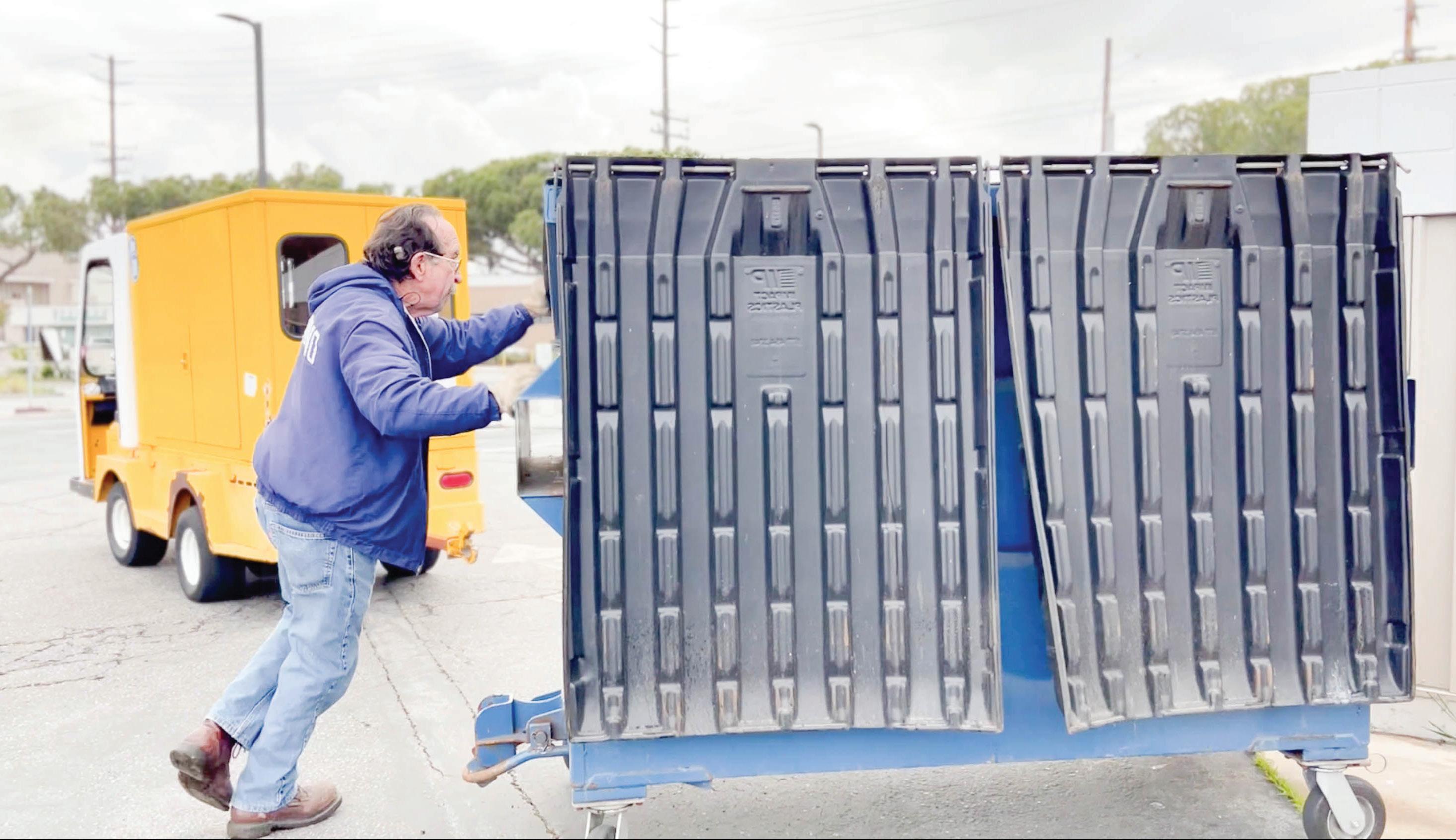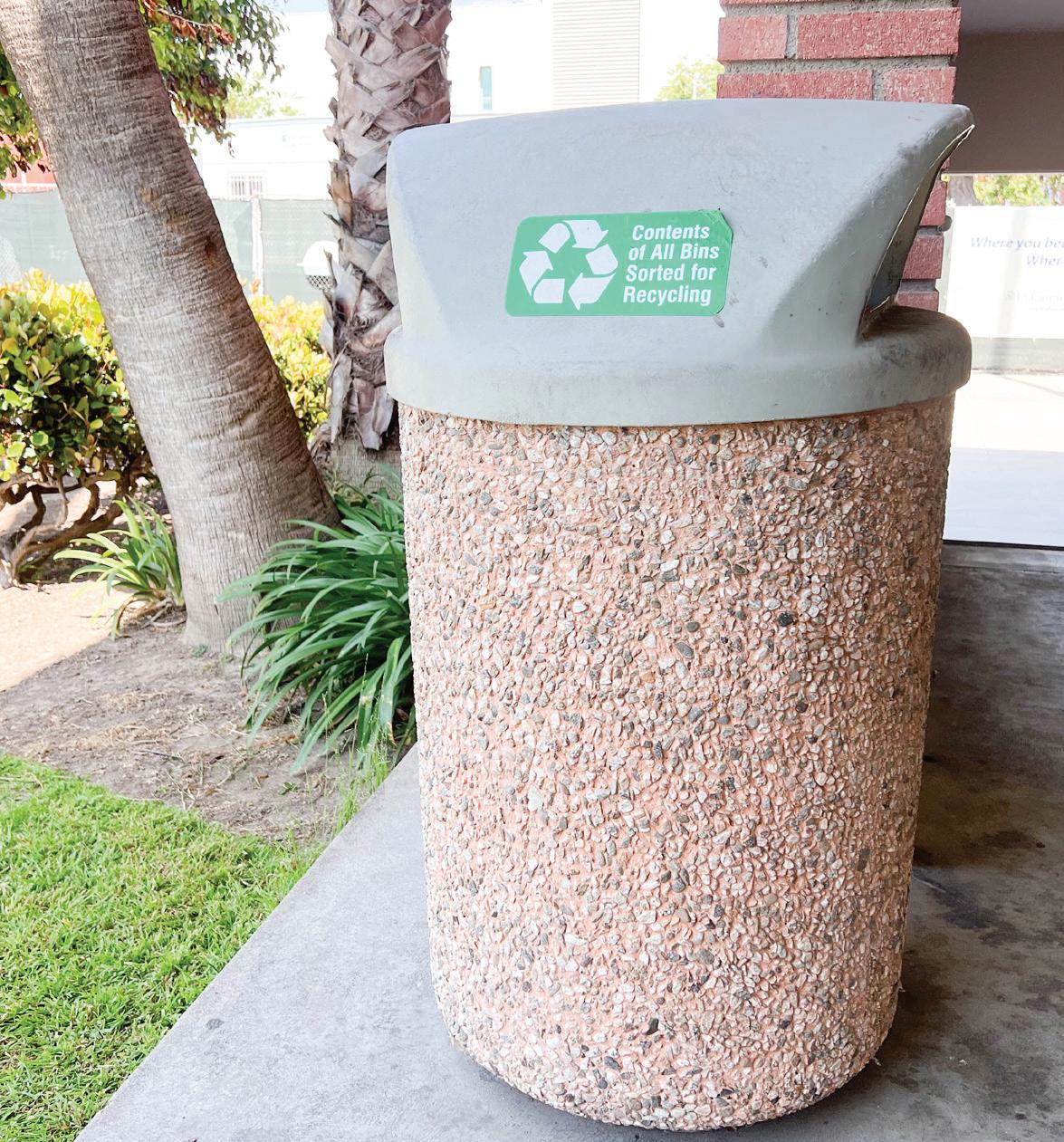
2 minute read
Going green? Hurdles to implement recycling efforts El Camino College has no plans for separate recycling and composting trash bins
By Nindiya Maheswari
ElCamino College placed one bin for all types of trash around campus because waste recycling efforts in the past added extra work for employees.
Advertisement
While throwing all kinds of trash into one bin is not against the law, this practice poses a risk of contamination of the recyclable materials which end up getting trashed, according to a recycling and composting expert.
El Camino College Grounds Supervisor Fernando Vicente said 10 years ago the college tried to recycle and set out recycling bins.
Vicente said most people did not care and threw landfill and food scraps into recycling bins.
They stopped recycling efforts because it was not a workable situation for the groundskeepers. There are only 10 groundskeepers on campus and they can’t spend more time sorting trash, Vicente said.
“We don’t really have a recycling program, except for the cardboard, computer paper and electronics,” Vicente said. “Our trash disposal work here is basically just dumping the trash cans.”
Vicente said groundskeepers take the trash from all-in-one bins to the trash compactor in the facility yard on campus every morning. Then the waste hauler Republic Services comes twice a week to dispose of the trash.
“To implement a recycling plan, it will require more employees and probably more equipment,” Vicente said. “It's not all that easy to do because the facilities department can only do so much with their budget.”
The Union requested waste management reports from 2020 to 2022, but the Assistant Director of Facilities and Planning Dwight Bradley said he does not have access to the information and will look into it more. Information was not provided to The Union by the May 23 deadline.
Bradley previously worked at the University of Houston and recently joined El Camino College.
He said he’d like to see a separation in who manages the trash pick-ups and who maintains the campus grounds.
California Assembly Bill (AB) 341 signed by Gov. Jerry Brown in October 2011 required mandatory recycling for businesses including public education agencies by July 2012, according to CalRecycle.
To comply with AB 341, businesses are mandated to separate recyclable materials on-site from the trash before a waste hauler collects them.
However, businesses can also use a trash service that takes mixed waste and separates the recyclables from the trash at a different site. This can be done as long as it yields diversion results comparable to source separation.
El Camino College chose the latter method.
By comparison, Santa Monica College Recycling Program Specialist Kenneth Derieg said the campus has three separate bins for recycling, composting and landfill.

“In some of our hallways and some office buildings, even the paper is separated from the bottles and cans,” Derieg said.
Derieg said the two separate recycling bins end up together in the same recycling dumpster at the end of the day.
However, it’s an effort to prevent liquid from soda cans from spilling out and making the paper wet as it is not recyclable, according to Derieg.
In addition, the college also has a sustainability center that does compost on-site for food waste collected from their food pantry and campus dining.
In contrast to Santa Monica College, El Camino College Associated Students Organization Senator of Mathematics Rebecca Gloyer and student leaders have been advocating for more sustainable waste management since the spring of 2022.
Gloyer said the college administration is supportive of the idea but does not have the funds for an extreme change in waste management.
As the college implemented a single-bin system, Gloyer said throwing all trash in a mixed waste bin makes it difficult to educate our students.
USC Sustainability Manager and recycling and composting expert Gina Whisenant said they pull recyclables out of trash inside a mixed waste facility.
Whisenant said more bottles are being pulled out than papers because they’re contaminated at that point.
“When it’s contaminated, it’s already compromised the materials,” Whisenant said. “They can no longer take them apart and recycle them and make them into something new.”










